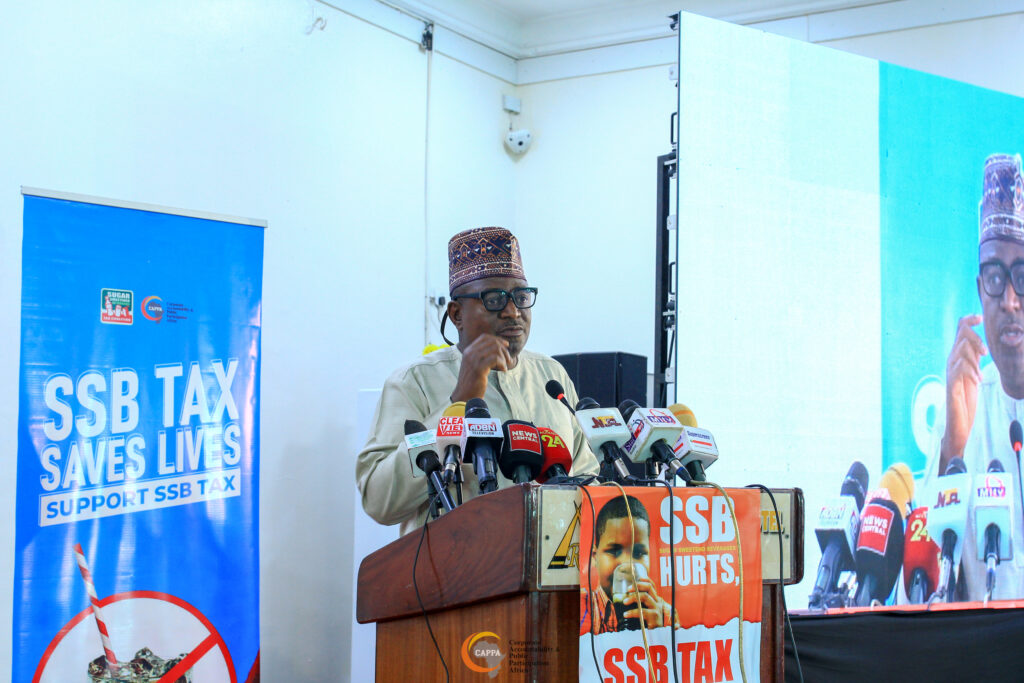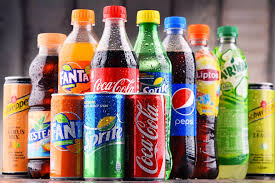The Corporate Accountability and Public Participation Africa (CAPPA) has faulted what it described as deliberate attempt by industry actors and paid mouthpieces to discredit its ongoing campaign for the increase in taxes on Sugar-Sweetened Beverages (SSB) in Nigeria.
Speaking at a media roundtable organised at the Reiz Continental Hotel, Abuja on Tuesday, CAPPA’s Executive Director, Akinbode Oluwafemi said the organisation needs to rebut the predictable barrage of half-truths and deceit being peddled by these industry actors and paid mouthpieces, including the newly surfaced and unverifiable platform that calls itself Think Business Africa.
CAPPA has been in the forefront of campaign for the increase in the SSB tax in the country because of the dangerous health implications of the excessive consumption of Sugar-Sweetened Beverages by Nigerians.
“Nigeria is in the throes of a public health crisis, a ticking time bomb driven by the excessive consumption of unhealthy diets, particularly SSBs. These sugar-sweetened beverages, popularly known as soft drinks and their likes, are killing us slowly, turning our streets into graveyards and our hospitals into crowded waiting rooms,” Oluwafemi said at the media roundtable.
But the industry actors and their paid mouthpieces do not want CAPPA to succeed in this campaign. They preferred profit at the expense of lives of many Nigerians
Oluwafemi said: “These false and wicked arguments, repeatedly recycled by these groups, are about protecting profit margins at the expense of Nigerian lives. But we say, any business model that thrives on illness and here are their tired, reheated claims — and our rebuttals:
- CAPPA’s recommendation for a tax hike lacks credibility because it fails to provide evidence that the existing tax has reduced SSB consumption or improved health outcomes.
Our answer is that this observation inadvertently reinforces our argument that the current ₦10 per litre has not reduced public consumption patterns of SSBs because it is simply too low, hence CAPPA’s advocacy for a sustainable and effective tax regime. Presently, the current ₦10/litre tax is barely a nudge, let alone a deterrent. It is too weak to work in the first place. At ₦10 per litre, consumer behaviour remains unchanged because the price signal is insignificant. This is like applying a drop of water to quench a raging fire. Without meaningful price impact, we cannot expect meaningful consumption changes.
Globally, the evidence is clear: taxes that increase retail prices by 20-50 percent reduce consumption and improve health outcomes. Countries like South Africa, Mexico, and the United Kingdom have implemented significant SSB taxes, and each recorded substantial drops in consumption, while their economies remained resilient. The related argument that Nigeria needs to “wait for an assessment” of the SSB tax’s effectiveness before increasing the SSB tax is a dangerous delay tactic commonly applied by the SSB industry. When it comes to public health, inaction is the worst decision we can make.
- Another claim is that CAPPA’s data is statistically inconsistent or outdated, or that there is a mismatch between cause and effect in SSB consumption among urban women or young males.
This is a classic deflection strategy: attack the messenger to distract from the message. Our data is current, evidence-based, and drawn from robust, peer-reviewed studies. This includes our simulation on the potential fiscal and public health impact of the SSB tax in Nigeria, and our latest “Junk on Our Plates” report, which exposes the deceptive marketing of unhealthy foods and drinks to Nigerians — including children and youth. The main point is simple: SSBs are fueling an epidemic of non-communicable diseases across every demographic. Debating who drinks more — urban women or young men — is a distraction.
These products are killing Nigerians every day.
- Tax will harm the economy and lead to job losses
This argument is neither new nor unique to Nigeria. It is the industry’s favourite horror story — the same scare tactic deployed in South Africa before they introduced their own SSB tax. Yet, the sector remained stable and jobs were protected. In fact, in countries where the SSB tax has been successfully implemented, beverage companies adapted by reformulating products, introducing healthier alternatives, and even expanding their market share.

Moreover, the “millions of jobs” the industry cites are largely informal retail roles — our men, mothers, and grandmothers selling sachet water and sweetened drinks at kiosks and traffic spots. They keep crying that “business is grinding to a halt,” yet they declare humongous profits every year and have even diversified into producing countless other drinks. What is so wrong in reformulating these products to make them healthy and safe for their consumers?
Instead of peddling fear, why not support these small vendors through product reformulation and revenue reinvestment: low-interest loans, cold-chain grants, and incentives to sell healthier options? If protecting profits means sacrificing our national workforce to diabetes, amputations, and premature deaths, then we have utterly lost our moral compass.
- The SSB Industry Is Critical to Nigeria’s Industrial Goals
The SSB industry’s contribution to backward integration is important, but not at the cost of public health. Like we said earlier, industrial development that thrives on human sickness is not development; it is vampirism. A well-structured SSB tax does not kill the industry—it pushes it to innovate. We should not use “industrial development” as an excuse to promote business environments that enable sickness. In fact, a higher SSB tax will incentivize manufacturers to reduce sugar content, diversify product lines, and create healthier options that support both public health and economic growth.
- Nigeria’s Per Capita Sugar Consumption is Low
The idea that Nigeria’s per capita sugar consumption is too low to warrant a tax is a dangerous thinking. What matters is not the national average, but the pattern and concentration of consumption among vulnerable groups, especially adolescents. Studies consistently show that in urban areas and among youths, sugary drink consumption is rapidly escalating. Moreover, using per capita figures as a shield ignores the exponential growth of Nigeria’s SSB market — growth already acknowledged by the industry itself — and the aggressive marketing tactics targeting young, impressionable consumers. If we wait until our per capita consumption rivals that of Western countries, it will be far too late; the damage will already be irreversible.
- The Tax Lacks Transparency
We wholeheartedly agree that the utilisation of tax revenues must be transparent and accountable. But the solution is stronger oversight, not abandoning the policy. In fact, CAPPA strongly recommends that revenues from the SSB tax be strictly earmarked for health promotion, nutrition education, and non-communicable disease prevention. We take this opportunity to reiterate our demand for public reporting by the Federal Inland Revenue Service, Nigeria Customs Service, and the Ministries of Finance and Health to track tax collection and ensure these funds truly support national health priorities.
- The Argument That Other Interventions Would Be More Holistic
The industry calls for labelling enforcement, nutrition education, and physical activity promotion. We agree! But this is not an either-or scenario. We need all the above, and an SSB tax is a powerful, proven tool to support these other interventions. You cannot talk about a comprehensive approach while undermining one of its strongest pillars. An SSB tax reduces consumption directly while also generating revenue to fund other arms of intervention. These efforts are complementary, not mutually exclusive.
- SSB Tax is Merely a Revenue Tool
If saving lives and preventing amputations is “just” a revenue grab, then let us grab as much as possible. This is about putting life above profit, about ensuring our children do not inherit a country where a bottle of soft drink is cheaper than clean water, and chronic and preventable diseases become rite of passage.
- The Policy is Imported and not Locally Relevant
Nigeria is part of a global community facing similar health threats, and learning from other countries is not weakness — it is wisdom. NCDs are not foreign; they are in our homes, our villages, our cities. The graves are Nigerian. The suffering is Nigerian. The hospitals are full of Nigerians. In this context, the SSB tax is not an imported idea — it is a homegrown necessity!
“So, why are we still debating whether to raise this tax? Why should we settle for less when the evidence is overwhelming that stronger action will save lives? Nigeria cannot afford the cost of delay. The time to act is now. A stronger SSB tax will save lives, ease the pressure on our fragile health system, and generate much-needed revenue to build a healthier, more prosperous nation. Let us choose health over profit. Let us choose the future over the past.”

